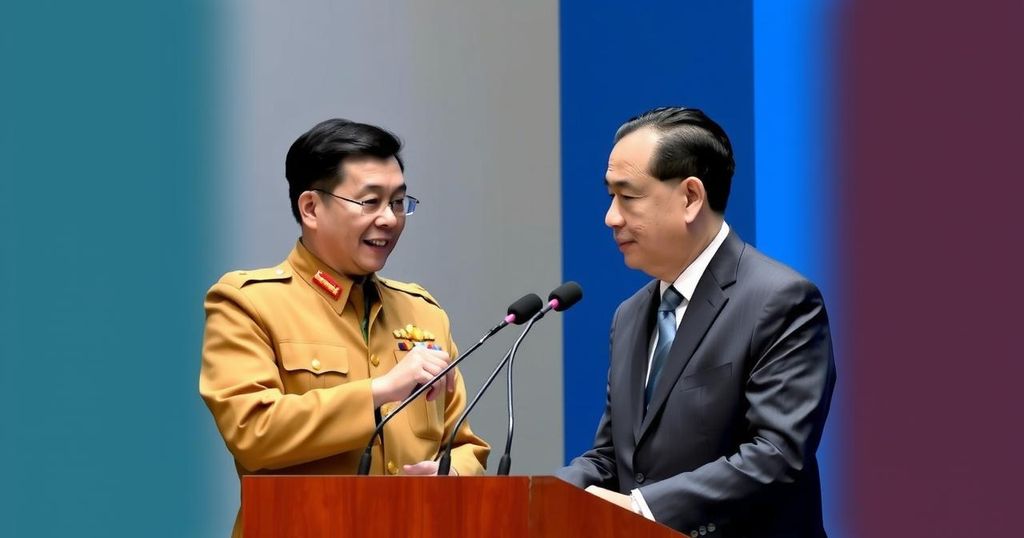Indonesia’s new president, Prabowo Subianto, called for collaboration with China rather than confrontation during his first overseas visit to Beijing. He emphasized Indonesia’s desire to be part of China’s economic and civilizational rise. With significant investments from China in Indonesian infrastructure and industries, Subianto aims to balance local economic interests with strong bilateral ties as he prepares to visit the U.S.
Indonesia’s newly inaugurated leader, President Prabowo Subianto, has emphasized the importance of fostering collaboration with China, as opposed to engaging in confrontational tactics. His remarks were made during a business forum in Beijing, where Indonesia secured $10 billion in new agreements. Subianto articulated Indonesia’s intention to participate in the advancement of China as a global economic and civilizational force, asserting, “We must give an example that in this modern age, collaboration — not confrontation — is the way for peace and prosperity.”
This visit marks President Subianto’s initial overseas trip since assuming office three weeks ago, with the subsequent leg taking him to the United States. His discussions with Chinese President Xi Jinping included plans to enhance bilateral relations by introducing security as an additional dimension of cooperation alongside political, economic, maritime, and cultural exchanges. They have slated the first joint meeting of their foreign and defense ministers for 2025.
The Indonesian leader reiterated his country’s longstanding policy of nonalignment and respect towards global powers, stating, “Indonesia is very clear. We have always been nonaligned, we have always been respectful of all great powers in the world.” Although Indonesia does not have a formal dispute with China in the context of the South China Sea, it has engaged in disputes with Chinese vessels in recent months over resource exploration.
An extensive influx of Chinese investments in Indonesia, particularly in mining and infrastructure development, contrasts with challenges faced by Indonesian manufacturers, who have suffered under the competition from low-priced Chinese imports. The government is navigating the delicate balance between championing local industries and maintaining strong trade relations with its largest trading partner, China.
The recent political shifts in Indonesia highlight a strategic pivot in its foreign relations, particularly in how it engages with China. As Indonesia’s new leadership emerges, the nation seeks to reinforce its economic capabilities while maintaining a neutral stance on global power dynamics. The ongoing territorial disputes in the South China Sea exemplify the complexities of Southeast Asian relations, further compounded by increased Chinese investment in various sectors within Indonesia. President Subianto stands at a pivotal moment, tasked with affirming Indonesia’s interests amidst regional tensions and external pressures.
In conclusion, President Prabowo Subianto’s emphasis on collaboration over confrontation with China signifies a strategic approach for Indonesia as it seeks to bolster its economy and navigate complex international relations. While fostering ties with China, Indonesia must contend with domestic industrial challenges posed by competition from Chinese products. Maintaining a nonaligned posture while building strategic partnerships will be crucial for Indonesia’s future on the global stage.
Original Source: abcnews.go.com






